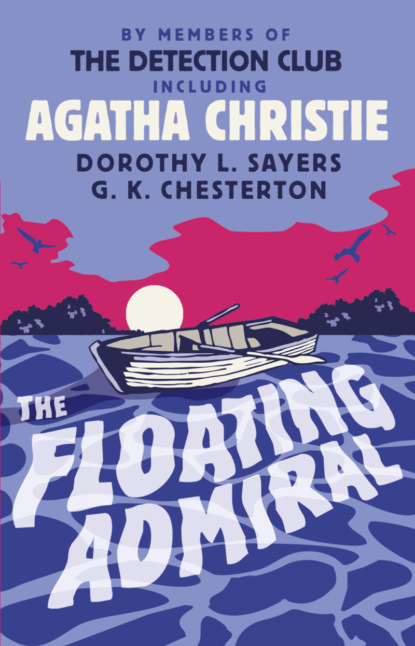По всем вопросам обращайтесь на: info@litportal.ru
(©) 2003-2025.
✖
The Floating Admiral
Автор
Год написания книги
2019
Настройки чтения
Размер шрифта
Высота строк
Поля
Ware smiled. “Because it couldn’t have been anything else, as the Vicar’s boys could tell you, if you asked them,” he replied. “It’s no business of mine, this murder, but naturally my mind’s been on it all the morning.”
“I’d very much like to hear the conclusions you’ve come to,” said Inspector Rudge quietly. “Why do you say that the painter of the Vicar’s boat couldn’t have been untied, for instance?”
“I haven’t come to any conclusions,” replied Ware impassively. “That is, I don’t know who killed the Admiral, if that’s what you mean. But it isn’t difficult to understand how the boats came to be found as they were.”
“Not for you, perhaps,” remarked the Inspector, “but it would be a great help to me if you’d explain.”
“Aye, that I will. Now take the Vicar’s boat first. She’s not kept in the boat-house while the boys are at home, but out in the stream, tied to a post. Sometimes the lads remember to take the oars and crutches out of her when they come ashore, mostly they don’t. I’ve seen them left in her dozens of times.
“Now, suppose they’d been out in her yesterday evening, and tied her up when the tide was high, or well up, as it would have been any time between seven and ten. You’ll find, in any tidal river, that the greater part of the rise happens during the first three hours of the flood, and the greater part of the fall during the first three hours of the ebb. Right. They come in when the tide’s well up, and what do they do? One of them stands up in the bow, and makes the painter fast to the post. They’re both well-grown lads, and they’d naturally make fast about four or five feet above the water. Then they’d pole the stern round, till it touched the bank and they could jump ashore. Maybe they were afraid of being late for dinner, and forgot the oars and crutches in their hurry.”
Inspector Rudge nodded. This did not seem to take him any further than he had got already.
“Now, take the Admiral’s boat,” continued Ware. “From what I hear, she was seen either in, or alongside, the Rundel Croft boat-house soon after ten. Now this I’m pretty sure of. If anybody took her out between ten and one this morning, they didn’t row far up the river. You don’t make much headway with a heavy boat like that against a three-knot tide. You take it from me, if she went out at all, she went down-stream, and not up.
“After one this morning—I’m talking in shore time now, not real time—things would be different. There’d be only a gentle stream running down till four, perhaps a knot at the most. Anyone could row against that; it wouldn’t take them more than a couple of hours to come up from Whynmouth, say, taking it easy. That’s clear enough, isn’t it?”
“Perfectly clear,” replied Rudge. “It comes to this. If the Admiral was murdered in his own boat, it must have been somewhere below Rundel Croft, anywhere as far down as Whynmouth, in fact?”
“That’s right. Now I suppose whoever murdered him brought the boat back with the body in it. Suppose they got back round about slack water. The chap, whoever he was, sees the Vicar’s boat moored to the post in the stream, and hits upon the idea of putting the body in it. He goes alongside, lifts the body in, and then what does he do next? How is he going to cast off the Vicar’s boat? Tell me that?”
“I don’t exactly see the difficulty,” replied the Inspector. “It wasn’t made fast with a chain and padlock.”
“You didn’t see what I was getting at just now,” said Ware, with a touch of impatience. “Why, when he got back, it was dead low water, and the river had fallen three or four feet since the boat had been made fast. Don’t you see? Unless he was a very tall man, he wouldn’t be able to reach the knot unless he swarmed up the post. There was only one thing for him to do, and that was to cut the painter. And there’s one thing about that you may not have noticed. That painter is a nearly new piece of inch-and-a-half manilla.”
“I noticed that it looked fairly new. But I can’t see for the moment what that’s got to do with it.”
“Ever tried to cut new manilla with an ordinary pocket knife? No, I suppose not. But you can take it from me that you’d find it a pretty tough job. And when you’d finished you’d have left a frayed edge. But this rope was cut clean through, like as though it had been cut with one stroke of a very sharp knife. Anyway, cut it was, and the boat left to drift.”
Вы ознакомились с фрагментом книги.
Приобретайте полный текст книги у нашего партнера:
Приобретайте полный текст книги у нашего партнера:

















